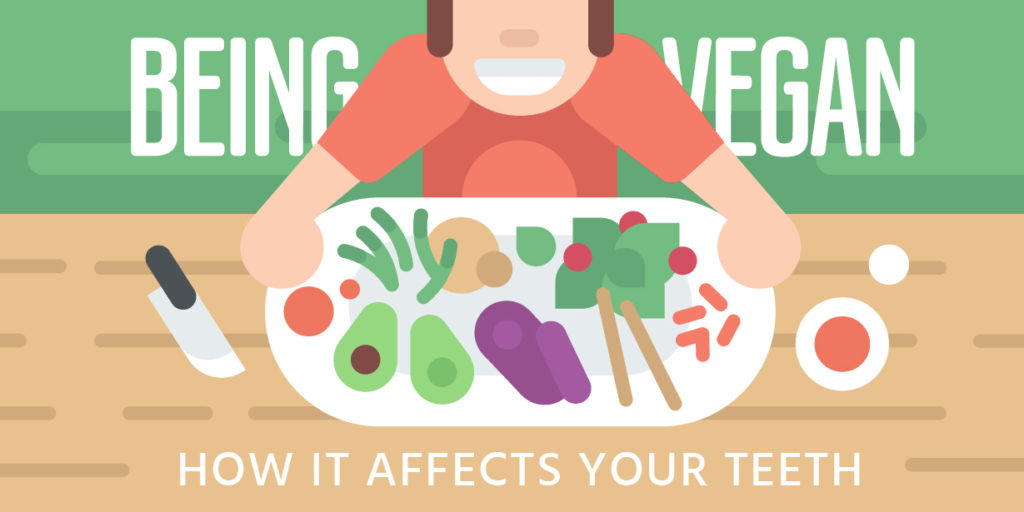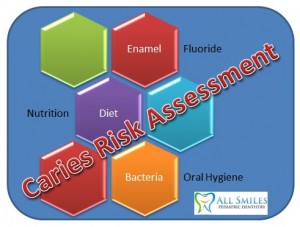How Being Vegan Affects Your Teeth
March 1st, 2018
[caption id="attachment_568" align="alignleft" width="640"] How Being Vegan Affects Your Teeth[/caption]
How Being Vegan Affects Your Teeth[/caption]
There is no doubt that a plant-based diet is optimal for health. Omnivores and vegans alike
benefit from the nutrients present in plants.
But how does what we eat relate to our dental health?
Is a vegan diet better or worse for dental health?
Well, it depends. There are some concerns for oral health when one consumes a vegan diet. Here are the main ones:
Vitamin B12 deficiency
A vitamin B12 deficiency can lead to gum disease and tooth loss. Vegans should supplement with adequate B12, as plants do not provide this important nutrient.
Lack of remineralizing foods
Remineralization occurs when essential minerals that support hardened, healthy enamel are resupplied to the tooth after loss caused by acid erosion. The best remineralizing foods include cheese, meat, and milk, but nuts and leafy greens can also help.
Lack of important amino acids
One example is the amino acid arginine, which is found in meat, poultry, fish, and dairy.
Arginine helps prevent cavities and gum disease by breaking down dental plaque. While arginine is found in higher quantities in meat, vegan sources of arginine include pumpkin seeds, peanuts, soybeans, lentils, and chickpeas.
Calcium concerns
Your body needs enough calcium to support healthy teeth and gums. Vegans need to supplement their diet with plenty of plant sources that contain calcium (almonds, leafy greens, beans, etc.) as well as fortified vegan milks (almond, soy, rice, etc.).
Frequent snacking
Continual snacking provides an environment for bacteria to thrive and attack your tooth’s enamel. Vegans may be more prone to frequent snacking in an effort to meet their body’s need for energy. You may find eating meals with a higher fat content helps you stay full for longer periods of time.
More sugars/starches in the diet
It can be easy as a vegan to eat a diet based on sweet/starchy foods like fruits and grains (cereal, bread, pasta, crackers, rice, etc.). But the bacteria in your mouth that cause tooth decay thrive on sugar. Make sure to round out your diet with non-sugary foods, such as tofu, nuts, seeds, and plenty of vegetables.
If you’re a vegan, you already know you have to be mindful of certain key nutrients that you may need to focus on or supplement in your diet. Keep this list in mind to ensure your dental health is also in tip-top shape!
At All Smiles Pediatric Dentistry, we incorporate proven techniques to share with you and your child at each dental checkup visit. Dr. Allen Job and his team are committed to providing the latest in oral health care prevention. For more information about brushing and flossing check out our preventive care page. Still want more information? Check out our blog posts on prevention! Our practice is centrally located in San Diego, CA.
Scheduling an appointment for your child is easy! Start here to schedule an appointment. All of our forms are online. Fill them out securely from your smartphone or tablet and hit send. On appointment day, your child will be seen at their scheduled time. For example, if you have a 9:00 AM appointment, your child will be seen at 9:00 AM.
 Dr. Allen Job, DDS, MS, MPH, MS is a board certified pediatric dentist who practices in San Diego, California, where he specializes in prevention. He is also an assistant professor at Loma Linda University Department of Pediatric Dentistry.
Dr. Allen Job, DDS, MS, MPH, MS is a board certified pediatric dentist who practices in San Diego, California, where he specializes in prevention. He is also an assistant professor at Loma Linda University Department of Pediatric Dentistry.




